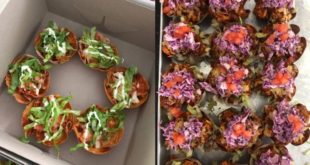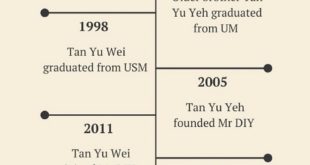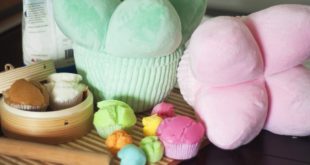Fresh figs are a rarer sight in supermarkets, and when you find them, chances are that they’re usually not all that sweet. But why?
According to Lawrence and Cheah, co-founders of Figara11, the imported figs sold in supermarkets have to be picked from their trees before ripening.
It’s because fully ripened figs are soft and fragile, making them tough to export.
But once picked unripe, they never continue to ripen, leading to more bland and seedier figs.
Figara11 wants to change Malaysians’ access to fresh, ripened figs, and also present them in a form that’s new to us.
So, they launched a fig farm of their own, despite it being an unpopular crop here with no cultivation model to easily adopt and implement.
A Leap Of Faith
Friends since secondary school, Lawrence and Cheah are chartered accountants by profession.
Cheah’s last job was with PriceWaterhouseCoopers (PwC), while Lawrence’s more varied career included working at KPMG and starting small F&B and e-commerce businesses.
Lawrence had a burning desire to start an agriculture business after leaving KPMG, but held off as doing so required a lot of capital and an equally passionate business partner.
Thankfully, that partner came along in the form of Cheah, and the timing was right as both of them were financially matured to delve into an unknown, high-risk industry.
Where There’s A Will, There’s A Way
Figara11 built a rainproof house to ensure the figs got their daily sunlight while only being watered by an irrigation system.
“The land that we use is also prone to flood, as it is located next to a river. To prevent the occasional flood from destroying the figs, a huge budget was allocated for earthworks to ensure the priority is given to the higher ground for the figs to grow,” they shared.

Along the way, the founders also realised that the natural soil wasn’t all that suitable for the figs, and that some parts of the land, no matter how much was done to change the soil texture, simply retained too much water.
With no actual access to electricity and water supply from the government, Lawrence and Cheah resorted to rain water harvesting and solar energy to keep the farm operational.
They learnt a lot from scratch, but also utilised readily-available knowledge online and guidance from those already in the industry to successfully produce figs.
Branching Out From The Basic
Having tried Figara11’s fresh figs for myself, I cannot deny their tenderness and sweetness.

These are available on Figara11’s site via pre-orders only, and RM20 will get you 250g of fresh grade A figs of the common fig species.
Fun Fact: Figs are graded, and the highest grading given is called grade AA. There are also giant figs that can weigh up to 150g per fig.
Figara11 offers grade AA and giant figs too. However, Lawrence and Cheah weren’t satisfied just selling fresh figs.
“There is lots of research done on the benefits of figs, and most boast the laxative qualities of figs in helping improve digestion,” they said.
Figs being used as a prebiotic supplement are nothing new overseas, but such a concept has yet to catch on here.
Malaysians are more used to probiotic supplements and drinks like kefir and kombucha.
But what probiotics need in order to flourish are prebiotics, which come in the form of soluble fibres, like what you’d find from consuming vegetables and fruits.
“As Malaysians are still new to the idea of prebiotics, we thought that instead of just selling fresh figs, why not introduce the figs as a botanical drink infused with many other superfruits and enhanced with more prebiotics from other sources?” Lawrence and Cheah said.
Before Probiotics, You Need Prebiotics
So, they created Gugu Guts.

Since their September launch, their customers have noted improvements in digestion, and those with constipation saw immediate effects upon proper usage.
Some customers with eczema linked to poor gut health also shared improvements with the duo.
Fresh figs make up the main ingredients of Gugu Guts, and some of the other superfruits in it include pomegranate, goji berry, cranberry, and raspberry, to name a few.
Gugu Guts has zero processed sugar but still contains natural sugar (fructose) from the fruits, so we had to ask if diabetics could consume it.
“For those that are diabetic, we recommend trying the Gugu Guts for a few days and see if the sugar level in their blood spikes,” they said.
“So far, we do not encounter any issue as the recommended daily consumption is 4 tablespoons, which isn’t excessive.”
No Cutting Corners
For a product that costs RM149 (350ml) and should be consumed within 2 weeks, Gugu Guts may seem pricey.
The founders explained that it’s because it’s a concentrated prebiotic with very little water.
“We believe Gugu Guts is able to deliver its value and because it is made of premium ingredients, those that are health conscious would definitely value Gugu Guts.”
Furthermore, Figara11 doesn’t skimp when it comes to quality packaging.
The thick, frosted bottle of Gugu Guts is sourced overseas along with its cork. This ensures the unopened emulsion stays prime for 1-2 years.
Using a glass bottle also enables them to do a hot filling method, cancelling the need for artificial preservatives.
The delivery box used is hardened with thick craft paper that further ensures the product reaches customers unbroken.
“Yes, it comes with a higher price tag, but with such premium ingredients, we should not trim on its packaging and bottling,” Lawrence and Cheah reasoned.
Promo Code: Figara11 is having a 11.11 promotion for a bundle of 3 Gugu Guts bottles that costs RM360, which saves you RM87 from the regular retail price. With this promo, you’d also get a box of grade A figs valued at RM20 per order, limited to those in Klang Valley. You can use our promo code DKL111 for RM11 off.
Reaching The Right Consumers
Gugu Guts sold over 100 bottles within a few weeks with minimal marketing. Now, they’re gaining more exposure for the product through affiliates and reseller programmes.
They prefer to go to niche retailers and specific F&B establishments, as they believe those who frequent these places can appreciate the fully-ripened figs better.
Within the next 2 years, Lawrence and Cheah hope to penetrate the Singaporean market.
“When we have reached our goal of exporting our products overseas, that is when we know Figara11 has made it.”
“As of now, we are still trying our best to produce high quality figs and fulfilling demands on the market,” they said.
They believe that the market is big enough for more players, and hope to one day become a “buatan Malaysia” product that we can be proud of.
“But for that to happen, we are trying our best to breakeven as early as possible and expand our farm to produce what is considered sufficient volume for fruits/products to be exported.”
Featured Image Credit: Lawrence and Cheah, co-founders of Figara11



